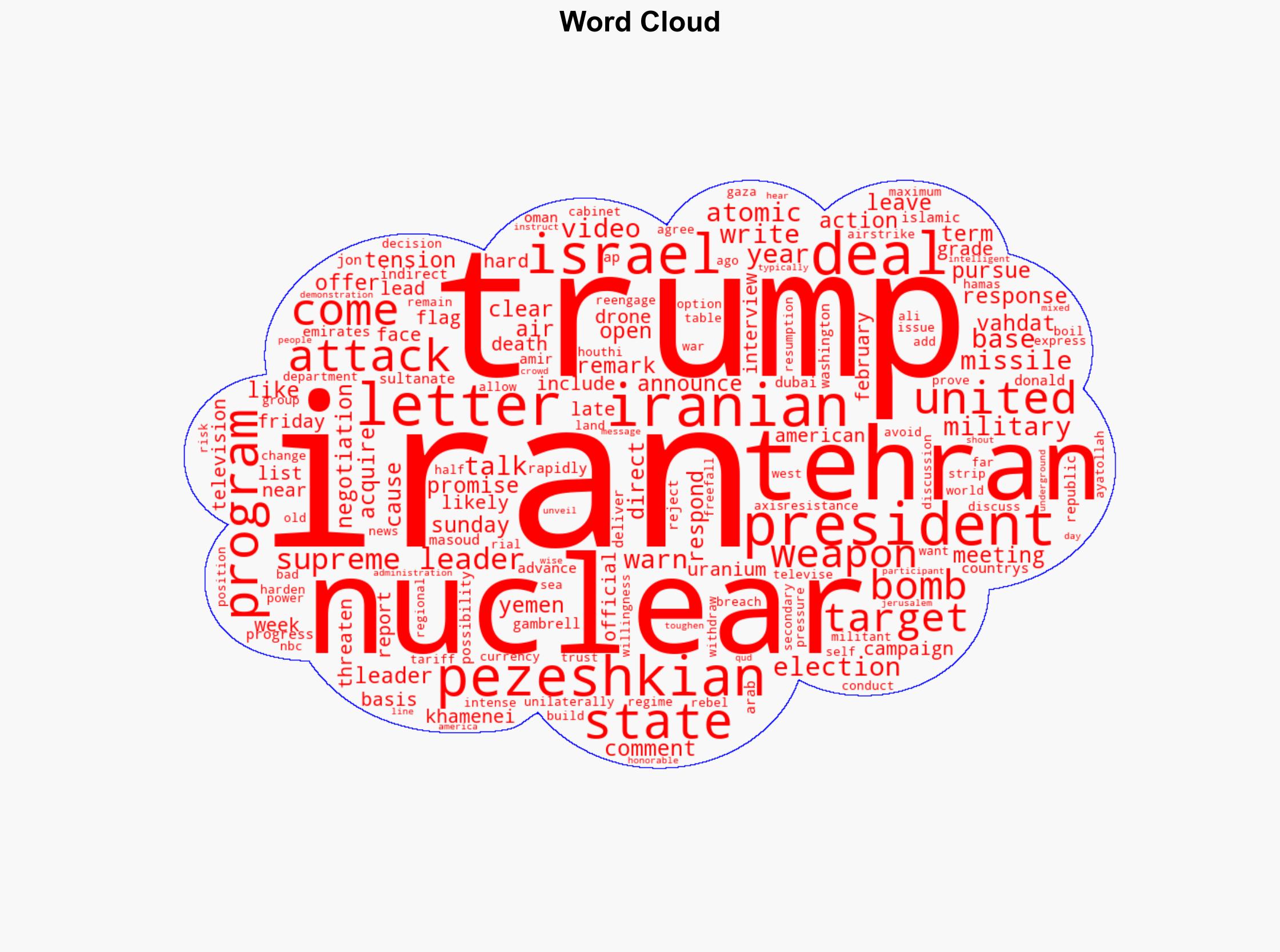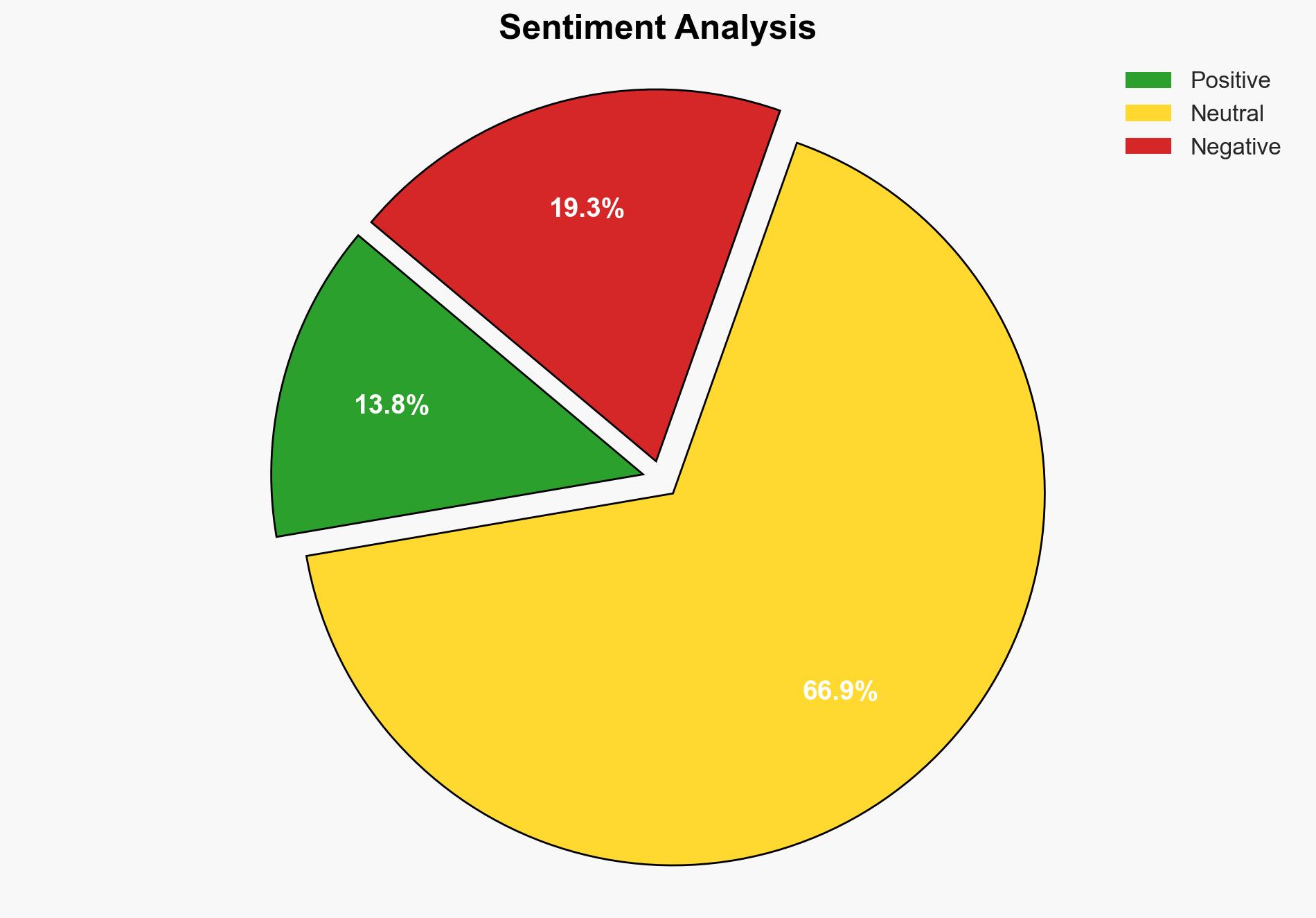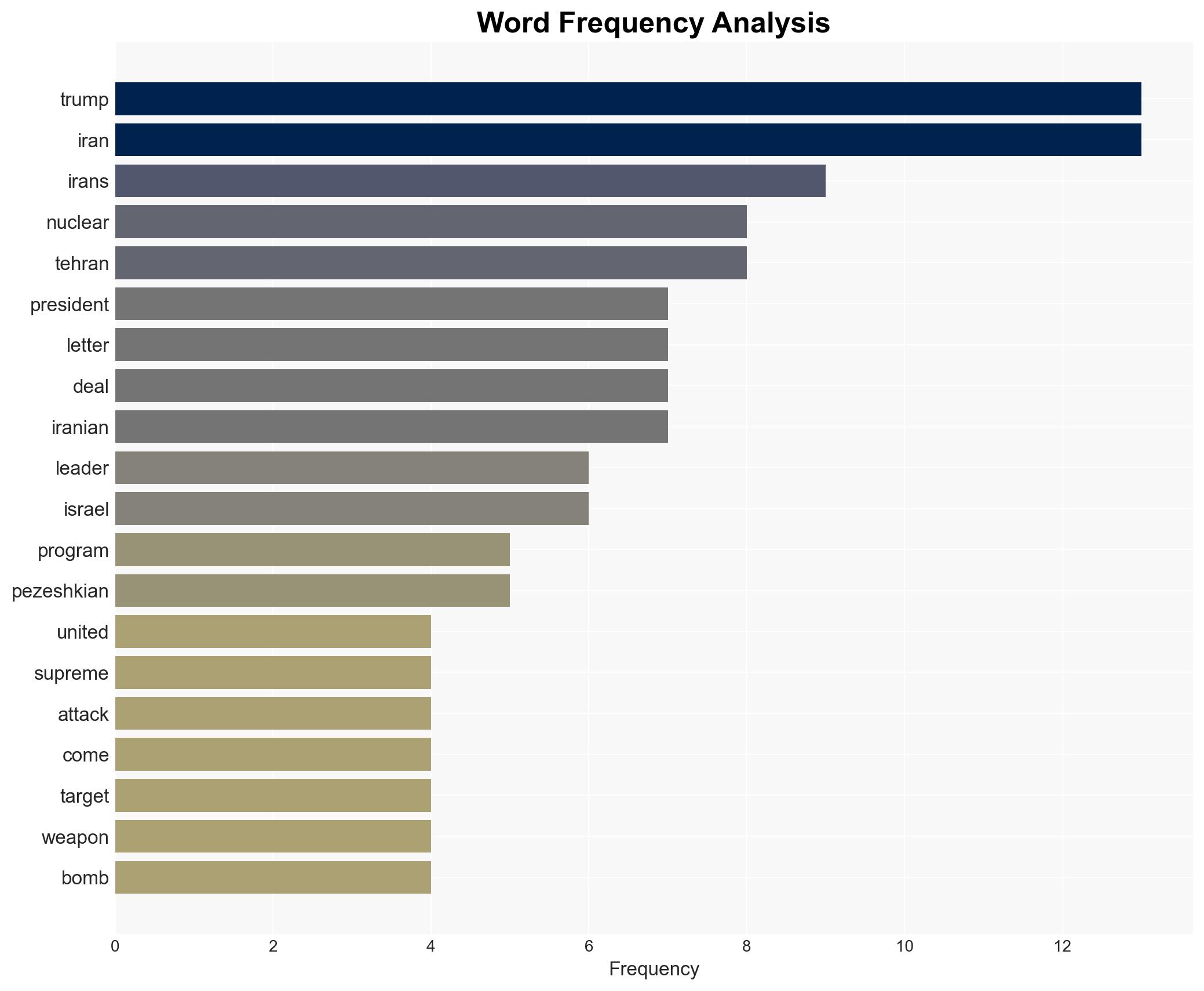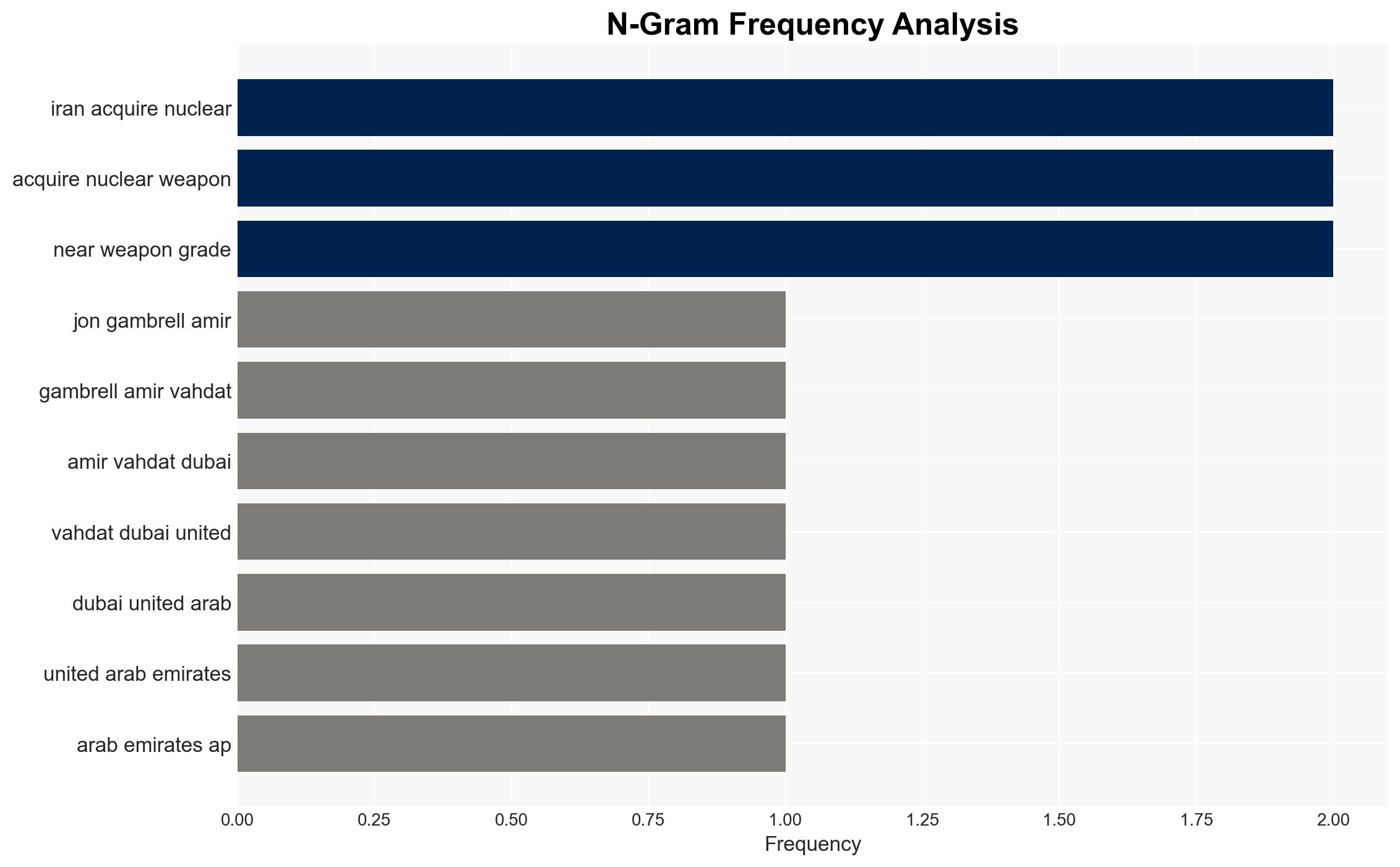Iran has rejected direct negotiations with the US after Trump letter – CBS News
Published on: 2025-03-30
Intelligence Report: Iran has rejected direct negotiations with the US after Trump letter – CBS News
1. BLUF (Bottom Line Up Front)
Iran has officially rejected direct negotiations with the United States following a letter from Donald Trump. This decision comes amidst escalating tensions in the region and Iran’s advancing nuclear program. The possibility of indirect negotiations remains open, but the situation poses significant risks to regional stability and international security.
2. Detailed Analysis
The following structured analytic techniques have been applied for this analysis:
General Analysis
The rejection of direct talks by Iran, as articulated by Masoud Pezeshkian, highlights a hardened stance against the US, potentially influenced by recent regional conflicts and internal political dynamics. The decision aligns with Iran’s strategic posture of resistance and its ongoing nuclear advancements. The mention of indirect negotiations suggests a potential diplomatic avenue, albeit fraught with complexities.
3. Implications and Strategic Risks
The refusal to engage in direct negotiations increases the risk of military confrontations, particularly with ongoing tensions involving Israel and Iran-backed groups. Economic sanctions and the “maximum pressure” campaign by the US have led to economic instability in Iran, exemplified by the freefall of the Iranian rial. The potential for regional escalation remains high, with significant implications for global energy markets and geopolitical alliances.
4. Recommendations and Outlook
Recommendations:
- Encourage diplomatic engagement through intermediaries to de-escalate tensions and explore indirect negotiation channels.
- Enhance intelligence-sharing mechanisms among allies to monitor developments in Iran’s nuclear program and regional activities.
- Consider economic incentives or relief measures to facilitate dialogue and reduce economic pressures on Iran.
Outlook:
Best-case scenario: Indirect negotiations lead to a reduction in tensions and a framework for future direct talks.
Worst-case scenario: Escalation into military conflict, disrupting regional stability and global markets.
Most likely outcome: Continued diplomatic stalemate with periodic indirect engagements and ongoing regional tensions.
5. Key Individuals and Entities
The report mentions significant individuals and organizations:
Donald Trump
Masoud Pezeshkian
Ayatollah Ali Khamenei
Mohammad Bagher Qalibaf
Jon Gambrell
Amir Vahdat





